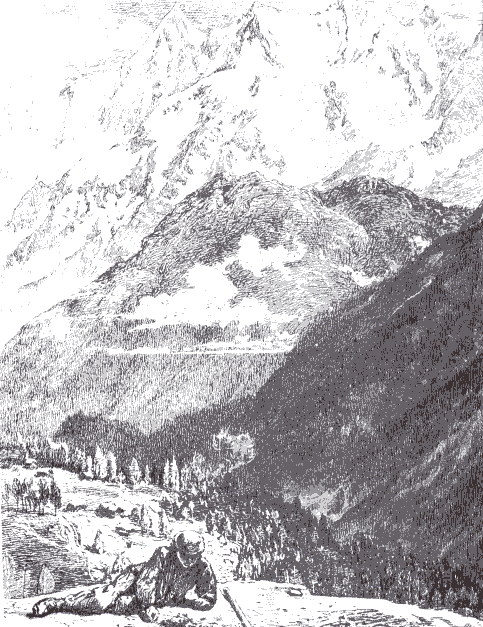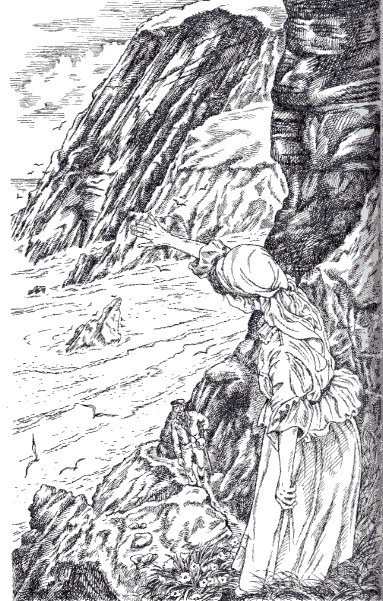

After we finished our reading of Castle Richmond, and some hesitation over whether just to read a book by an Irish writer of the 19th century or to go onto another Anglo-Irish novel by Trollope, we went on to An Eye for an Eye and The Landleaguers. I was still writing facilitating postings each week but had begun to tire of these, and for An Eye for an Eye, wrote far less than I had in a long time. An Eye for an Eye is poetic romance and there were complaints about its mode, but there was also much interest in the conflicts set up between Catholic and Protestant, English and Irish, upper class, wealthy and respectable, and lower class, poor and despised as embodied in the proposed marriage of the young Fred and Kate, and in the characters themselves. We got into excited discussions there.
Participants for both books included Clarissa Ackroyd; Ian Duncan, Sigmund Eisner, Rory O'Farrell, Don Flanagan, Judy Geater, Wayne Gisslen, Jeremy Godfrey, Kristi Jalics, Howard Merkin, Michael Powe, Teresa Ransom, Jill Spriggs, Todd Yelrom, Judy Warner, Doris White
The history of the publication of An Eye for an Eye shows the difficulty of publishing a story about a woman who is strongly sexual and until pregnancy apparently unashamed of having a lover and not being married to him. After that, this being Victorian fiction, she immediately changes -- and realistically becomes fearful of becoming an outcast. Trollope wrote it from 13 September to 10 October, 1870. It took 9 years to place it. It was serialized from 24 August 1878 to 1 February 1879 by the Whitehall Review, and published by Chapman and Hall as a book in January 1879. When it was published it was vitriolically attacked except by those people (among them Richard Holt Hutton) who saw it is a poetic masterpiece.

Like The Macdermots of Ballycloran and Castle Richmond, The Landleaguers is a powerful political novel. Like The Macdermots and Castle Richmond, The Landleaguers is utterly contemporary; it dramatizes the rebellion of the Irish against the English in the 1880s; it also does this in a way that makes it relevant to our political concerns today. As The Macdermots dramatizes scapegoating and state-terrorist tactics so The Landleaguers centers on conflicts between landlords and tenants and dramatizes the results of individual terrorism and the paranoia that seeps through a community when illegal violence becomes endemic and leads to cycles of retaliatory murder. .
Trollope researched this novel (he went to Ireland) and wrote it when he had already become very ill. He began the actual writing in June 1882 and was in the midst when on November 3rd he had the sudden stroke which incapacitated him. The story is told that he was laughing with others while someone was reading a funny story aloud and then in a couple of minutes the others realised he had stopped laughing. N. John Hall writes the "seizure paralyzed his right side, almost completely impairing his powers of reason and speech." Those who have read his letter will know that for a couple of years leading up to this mortal event Trollope had been dealing with other symptoms of heart problems. In one his hand seems to be paralyzed; using slightly different language, the physicians at the time characterized him as suffering from angina pectoris (very bad pains in his chest). He lived on for another month and there are letters between his brother and others showing the tender care he was getting and their concern for him; he seemed to rally at one point (he is said to be improving, able to walk, use an arm, sleeps well), but then (ominously) the letters cease for two weeks, and by December 6 he is reported as "in a critical condition" and "unconscious". He died at 6 p.m on December 6, 1882. The novel was published posthumously by his son, Henry. It was serialized between 16 November 1882 and 4 October 1883, and then published as a book in October 1883 by Chatto and Windus.